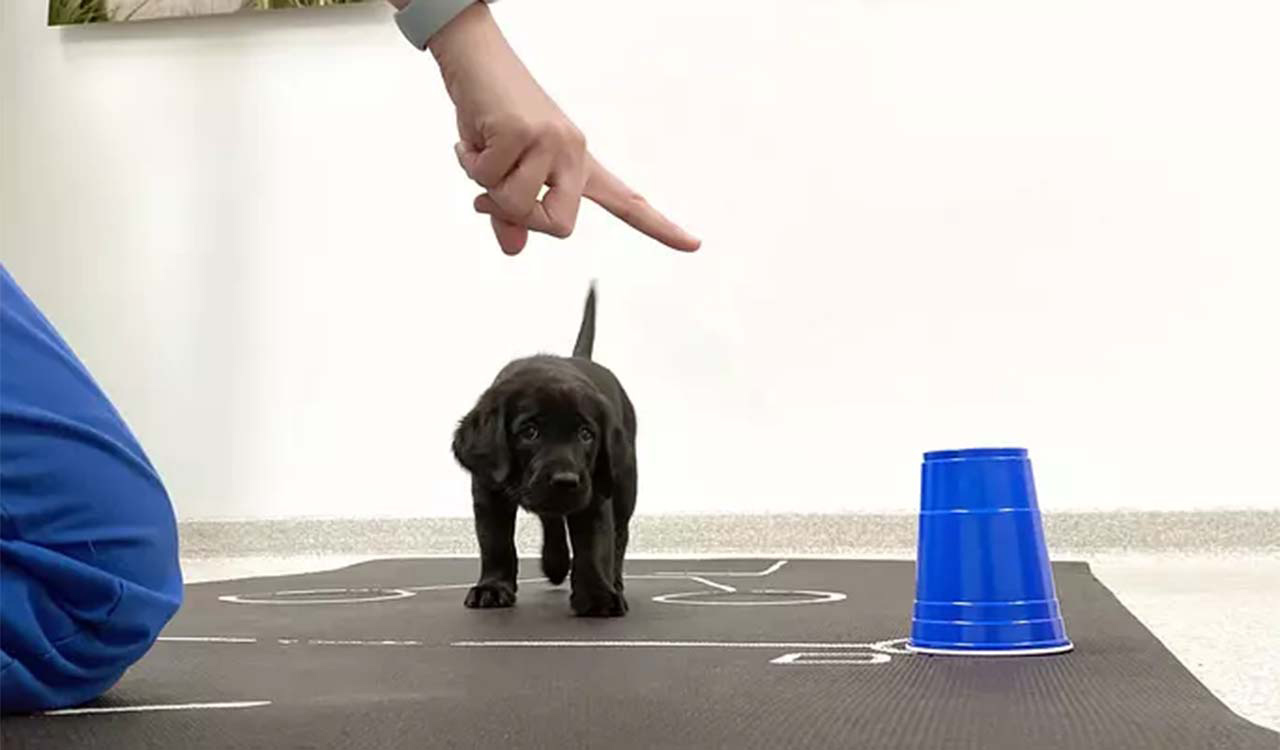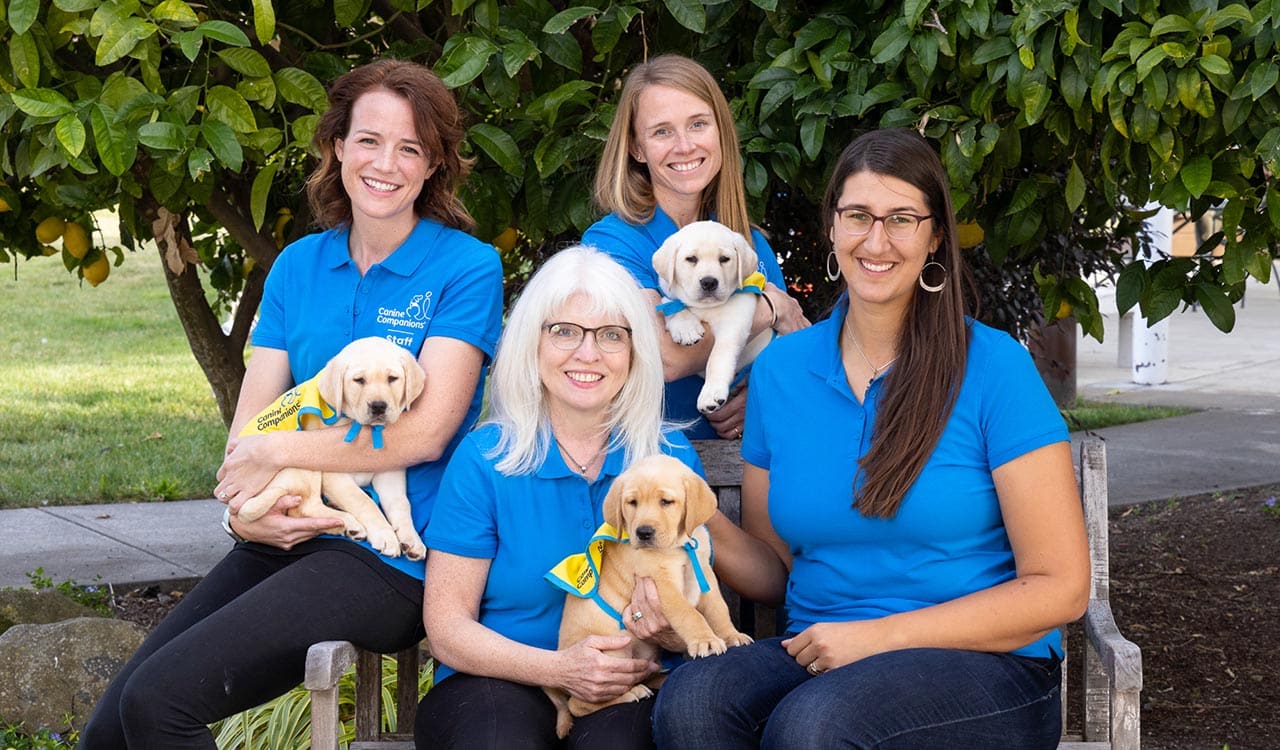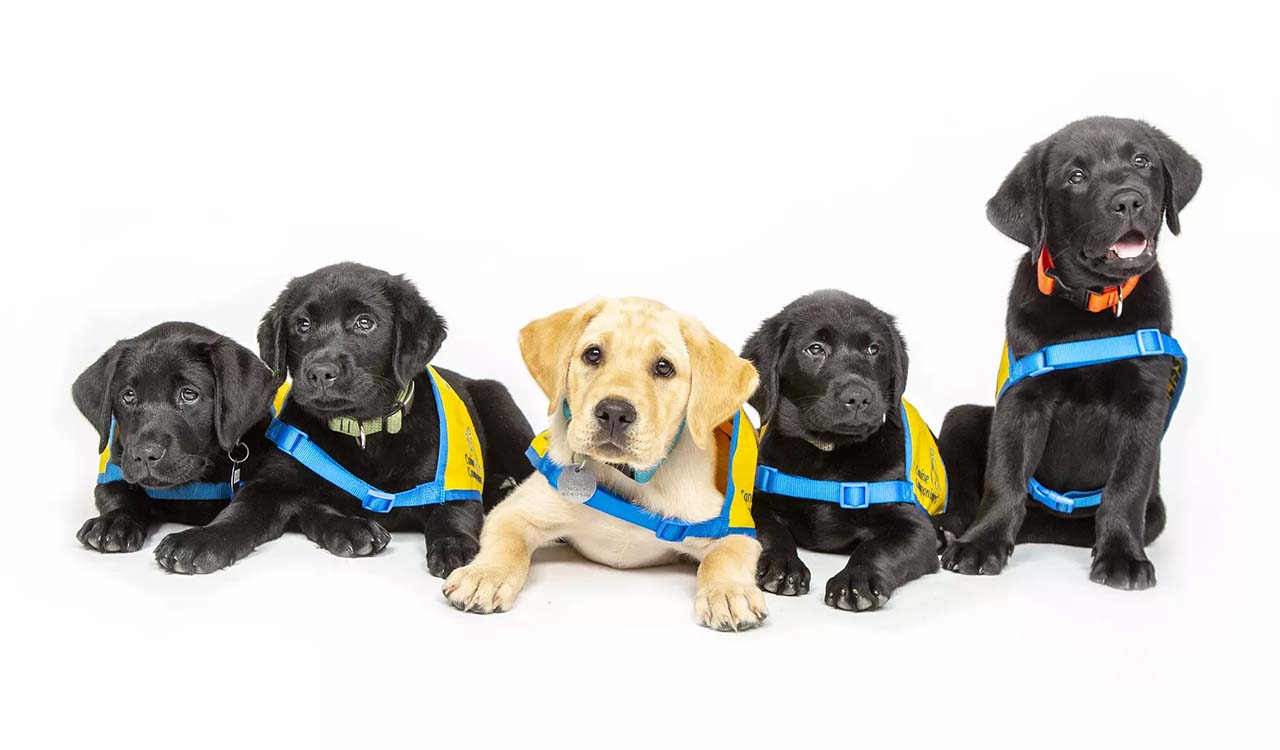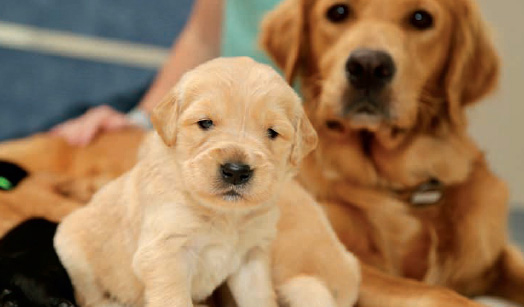Research Team
Meet the research team!
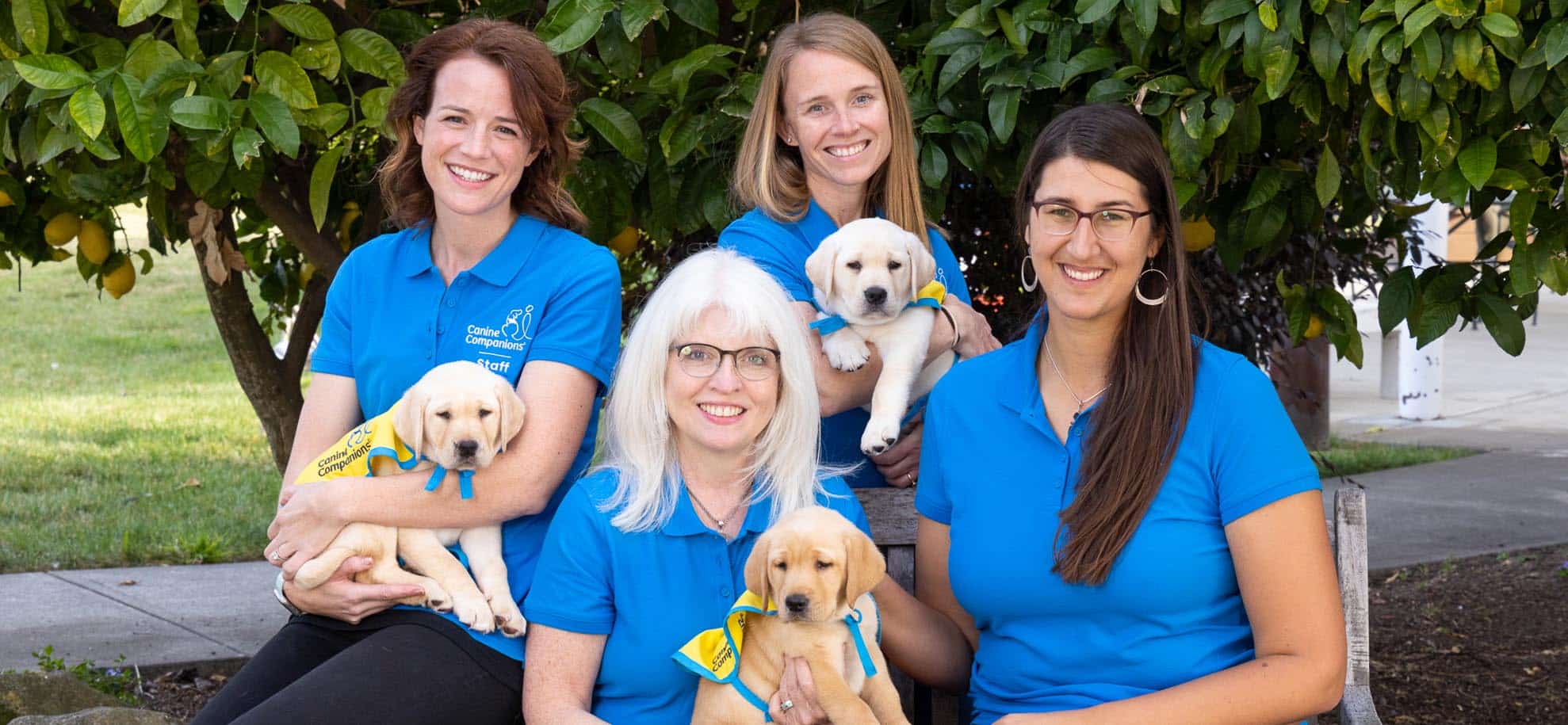
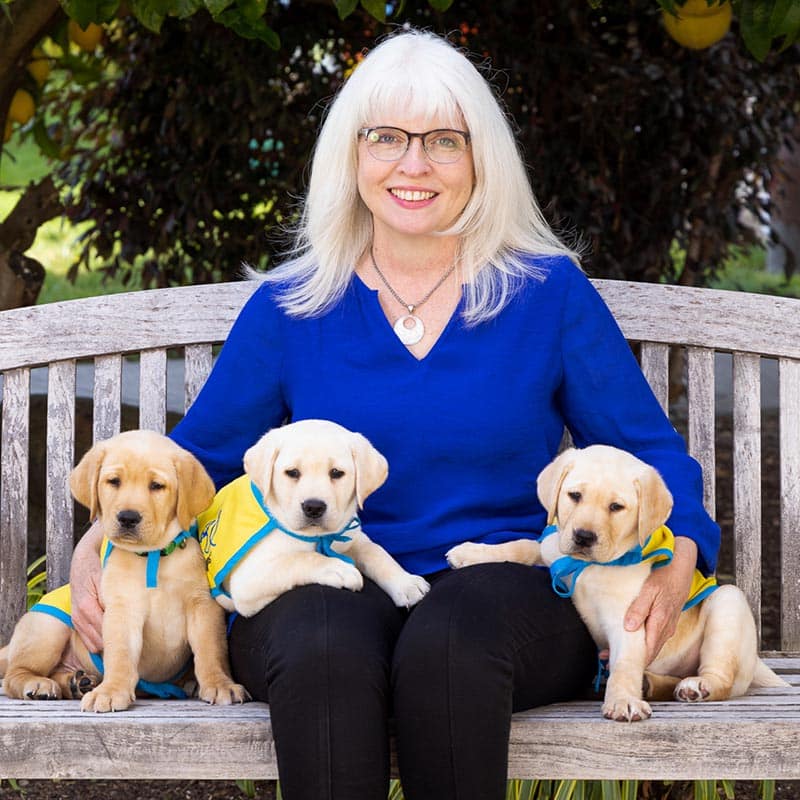
- Brenda S. Kennedy, DVM, MS, Vice President of Canine Health & Research
Dr. Kennedy joined Canine Companions as their national veterinarian in 2014 and was promoted to her current position as the vice president of canine health and research in 2016 – a role that combines her passion for research with her love of veterinary medicine. She oversees the veterinary care of all dogs in the puppy, breeding, training and graduate programs at Canine Companions. In addition, her research team directs collaborative research partnerships that focus on identifying science-based tools to support the health, longevity, ideal behavior and cognitive skills of service dogs.
Brenda completed her undergraduate and graduate degrees in the fields of biochemistry and developmental biology at Northwestern University and MIT. After graduate school, she worked in biotechnology as a research scientist in the field of genomics. She received her DVM degree from Tufts University in 1998 and worked as a veterinarian in private practice for 16 years prior to joining Canine Companions.
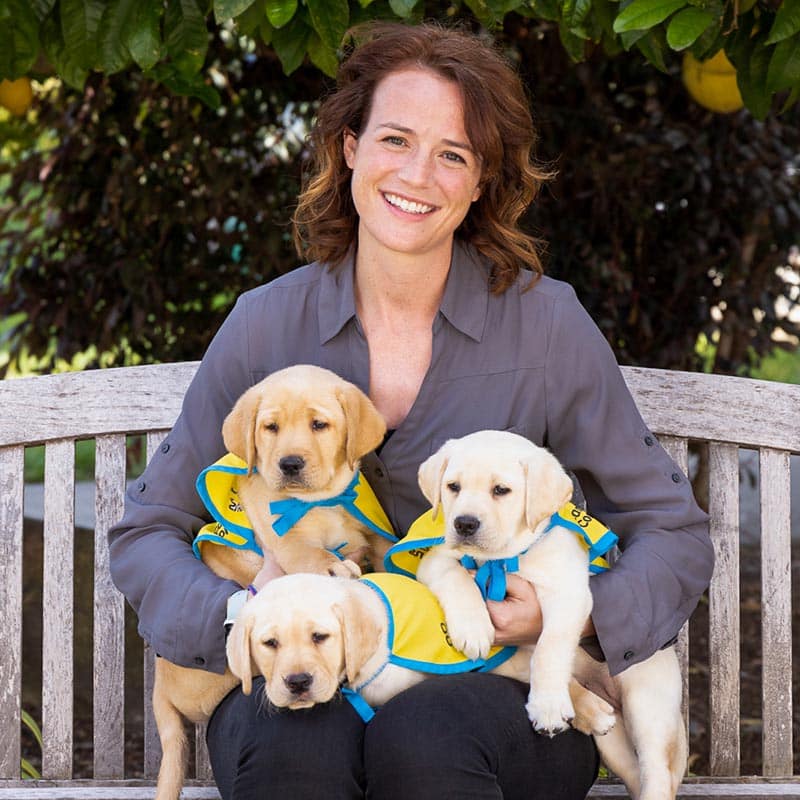
- Emily Bray, PhD, Postdoctoral Research Associate
Emily Bray first started conducting research with Canine Companions as an undergraduate at the Duke Canine Cognition Center. She then went on to earn her PhD in Psychology at the University of Pennsylvania, where she partnered with The Seeing Eye, Inc. to conduct a longitudinal study of mothering style and puppy development. After graduating, she officially joined the research team at Canine Companions in 2017, where she also holds a joint position with the Arizona Canine Cognition Center (in the School of Anthropology at the University of Arizona).
In her role, Emily leads our cognitive testing in 8-week-old puppies through adult dogs, and spearheads projects on topics ranging from maternal style to cognitive aging to understanding the contribution of genetics to behavioral traits. Her research aims to better understand how early developmental, behavioral, and cognitive factors impact later life outcomes and success in our program.
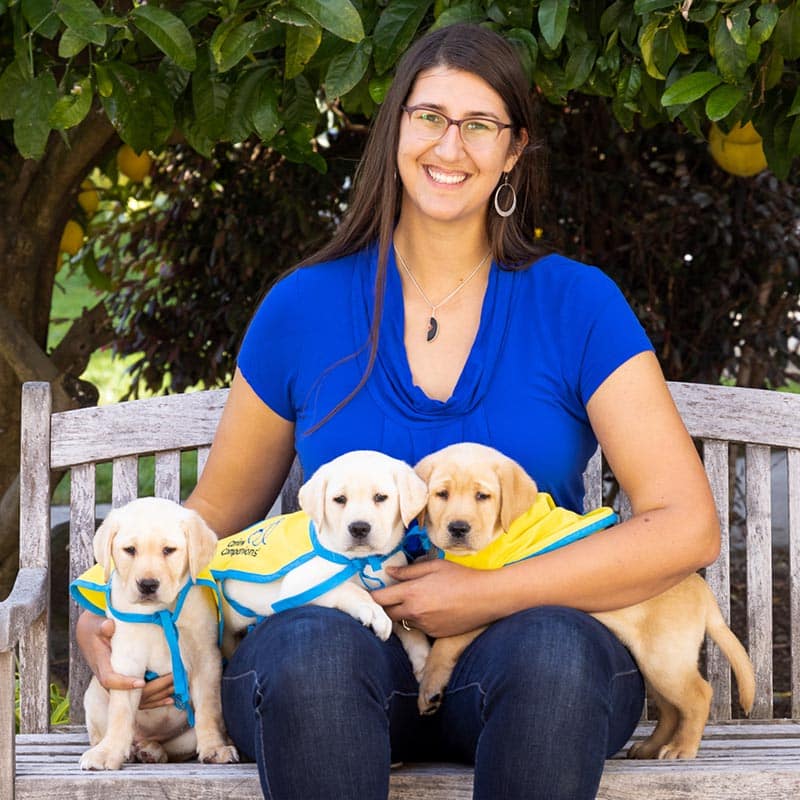
- Theadora Block, PhD, Research Program Manager
Theadora joined the research team as Research Program Manager in 2022. She and the team develop and guide research collaborations with universities and industry along with working with lots of internal data and research questions to support Canine Companions missions.
Theadora received her BA and PhD in Ecology & Evolutionary Biology from UC Santa Cruz, where she focused on animal behavior and ecology. She studied golden-crowned sparrows and their complex societies, where birds have best friends during the winter and migrate back to the same tiny spot year after year. These sparrows even have distinct personalities, just like dogs. After spending lots of time researching how and why animals behave the way they do, Theadora is happily applying her background in animal behavior and research to all things canine.
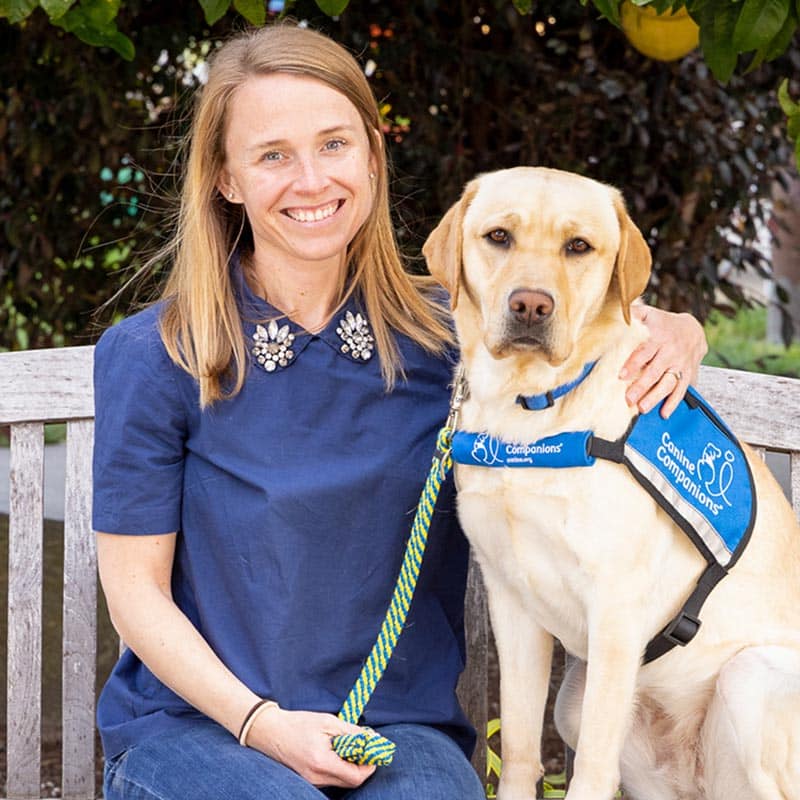
- Laura Douglas, M.Ed., Research Assistant
Laura Douglas started as the Research Assistant at Canine Companions in 2019. In this role she supports all the ongoing research projects at Canine Companions and research-related projects such as maintaining the biobank inventory, managing data, and coordinating research support coming from volunteers to the vet department.
Prior to joining Canine Companions, Laura worked in education and client services at organizations focused on service dogs for individuals with autism or PTSD. Laura has a Master of Education in special education from the University of Hawaii and a BA in Psychology from Duke University.

